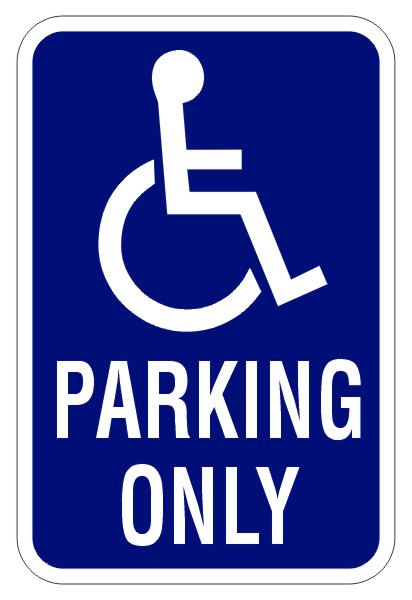As indicated by the header of my blog, I focus on language, power, and privilege. One principle that I have consistently applied, whether talking about gender, race, academic life, whatever, is that when you have privilege and power, your speech is more constrained than if you do not.
I wrote about this kind of issue most recently in my rules for
talking while privileged in regards to gender, but it's much bigger than that. One way of perpetuating power is to control the discourse of the people over whom you have power. Demanding people be polite or civil, as has recently
happened all over
college campuses is a way of insisting that people don't upset structured power dynamics. Change often requires incivility.
Problems arise, however, when the power dynamic is not clear or contested. Right-wing white Christians like to claim that Christianity and whiteness are both under attack; ergo, as victims, they justify their incivility. A similar process takes place with Men's Rights Activists. In both cases, I am entirely comfortable saying that their assessment of the power dynamic is wrong.
Which brings me to Israel.
Steven Salaita, would-be-professor at Illinois (here's
one link among hundreds) is the case in question. Here's the key dispute [my emphasis]
Mr. Kennedy’s statement argued that several of Mr. Salaita’s tweets about Israel "can be easily interpreted as basically anti-Semitic." The Chicago Tribune, in an editorial supporting the board’s vote, asserted on Thursday that Mr. Salaita had crossed the line into hate speech with tweets that said Zionists had been "transforming ‘anti-Semitism’ from something horrible into something honorable" and "I wish all the [expletive] West Bank settlers would go missing." The newspaper suggested that no faculty member would be given license to direct similar comments at black people, gay people, or women.
Many of Mr. Salaita’s supporters, however, argue that such comments are not anti-Semitic but fair, if emotional, expressions of opposition to Israel’s actions and to those who allege anti-Semitism in response to criticisms of the Israeli government.
There is, of course, a counter-argument, that
no faculty member would be harassed at all if they directed similar comments at Russia or the Ferguson Police Department, just to pick two powerful forces that received plenty of uncivil commentary, including from academics, this summer.
The problem is this:
Is Israel a military superpower, at least in the context of its region, and a political superpower in terms of its influence over American discourse? If we see Israel (and perhaps Likud and its allies) in such a context, then angry uncivil criticism becomes much more justifiable. We can say there is no analogy to black people, gay people, or women.
Or, does Israel carry with it the persecuted minority status afforded to Jews throughout history? Israel is surrounded by enemies, awash in antisemitic hate, that would eradicate it if they could. Antisemitism is on the rise worldwide and to deny its terrible power to threaten the lives and livelihoods of Jews around the world, including in America, would be naive. In such a context, to attack with uncivil speech is akin to spouting venom at blacks, gays, and women.
The answer, of course, is that both positions can be true at the same time.
I know that Steven Salaita is not antisemitic. I know it because a Jew and a scholar of Judaism recommended me to him (which eased my initial concerns), we've spoken, I've read his work, I've read more of his Twitter feed than the cherry-picked tweets, I've listened to him speak. I know he is very angry at Israel and challenges the premises and consequences of Zionist thought. I know he he used angry words as he was watching Twitter fill up with the faces of dead Palestinian children. I cannot fault him for this.
Here's
a post by Jerry Haber, an orthodox Jewish studies and philosophy professor, who divides his time between Israel and the US. He writes:
I would like to address the content of what one writer considers Salaita’s “most hateful tweets”, and, as an intellectual exercise, pose the following question to his detractors.
Had Salaita tweeted or blogged the following:
a. By conflating Jewishness and Israel, Israel is partly responsible when their disproportionate attacks on civilians are followed by regrettable anti-Semitic incidents in Europe.
b. If criticizing Israeli treatment of and attitudes towards Palestinians is anti-Semitic, then insofar as that criticism is justified, and indeed, commendable, so is anti-Semitism. But of course, criticizing Israel’s treatment of the Palestinians is not anti-Semitic; it is “anti-Semitism” only in the eyes of the Zionists, who conflate Judaism and Zionism.
c. The IDF spokesperson appears to justify violence committed against the Palestinian people, using techniques that are reminiscent of apologists for ethnic cleansing.
would his detractors still have argued that he is unfit to teach at the University of Illinois? No doubt many would. But I agree with much of those sentiments. So why do they go after Salaita and not go after me?
Either because Salaita’s language is more blunt and vulgar than mine, or because he is a Palestinian American, rather than an American Israeli. I have the creds that he lacks, and so I am protected in ways that he isn’t.
I think this analysis is sharp. To some extent, it's fine. When people on the inside - Jews in this case - criticize their own groups - Israel - it carries different weight than when an outsider does it. But here again, we have to analyze the relevant power dynamics.
In Salaita's perspective, in the context of this summer's war, Israel is the superpower. Whether or not you think the war and Israel's military strategy was justified or not, I find this perspective persuasive.












